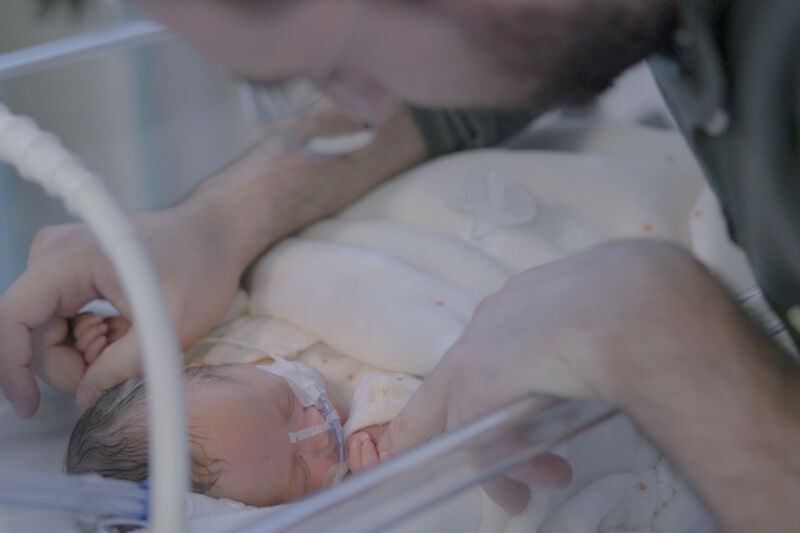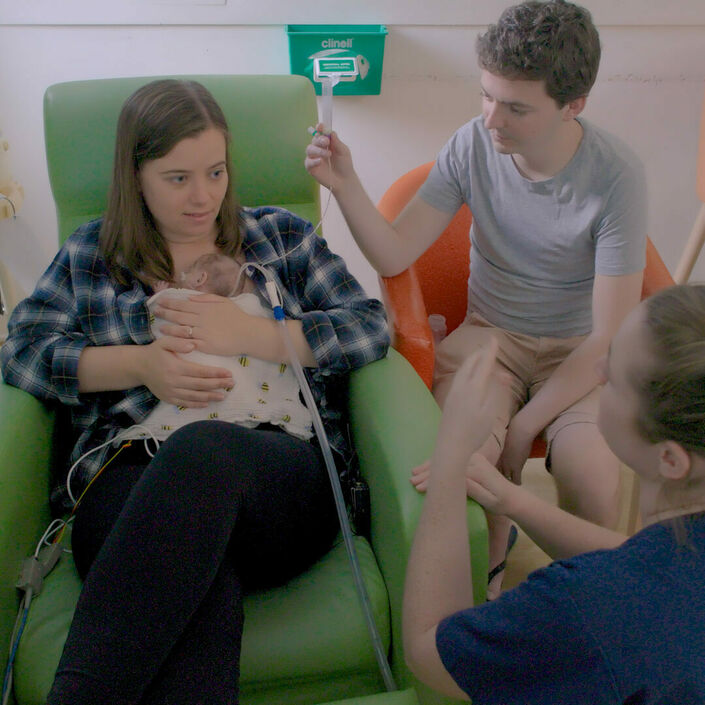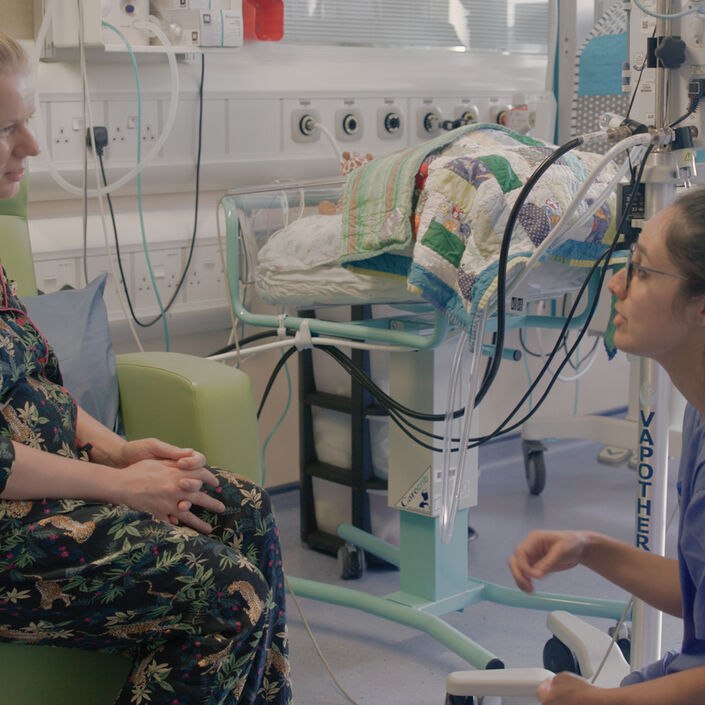How can I help comfort my baby?
When it comes to procedures on the neonatal unit, a parent’s touch, voice, smell, and presence can all contribute to reducing their baby’s discomfort or pain.
Parents also play an important role in watching their babies while in neonatal care. You can become an expert in understanding how your baby is feeling, including if they are uncomfortable or in pain.
Neonatal staff can help you spot signs that your baby is in pain or upset, and they can help you find ways to make your baby more comfortable.
How will I know what to do?
Touching and holding your baby can be overwhelming, especially if they are particularly small or connected to medical equipment.
The neonatal care team can show you ways to safely touch your baby, helping you build confidence as a parent. If you are not shown how to safely touch and comfort your baby, don’t be afraid to ask a member of the care team for help.
There is lots of research that shows all parents can have a positive impact on their baby’s care. Go to our references page for a full list of this research.



